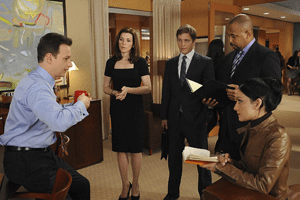
AT LEXMIA ABOGADOS WE ARE STARTING THE JUDICIAL PROCESSES DERIVED FROM THE PURCHASE OF SHARES FROM BANKIA, WE WORK 100% SUCCESSFULLY.
Bankia customers who purchased shares in the IPO or on the Stock Exchange can try to claim the entity to return the money they have lost. Experts say that the most appropriate route is to allege falsehood in the IPO prospectus.
The expert report on Bankia prepared by two technical experts from the Bank of Spain has opened a judicial avenue for those who decided to buy the entity's securities when it went public until May 2012. Now, the essential thing is to be clear about what type of action judicial procedure should be chosen, how to carry it out or what deadlines should be taken into account. To answer these questions, EXPANSIÓN has consulted with Pablo Franquet, a lawyer specialized in banking litigation at Jausas, and Fernando Zunzunegui, founding partner of Zunzunegui Abogados, about the steps to follow for those who decide to claim a refund of the money they invested in the purchase. of actions.
Who could claim a refund? All shareholders who attended Bankia's IPO could file a lawsuit. All those who acquired the entity's shares in the secondary market until May 2012, the date of Bankia's first stock market crash, after the replacement of the top management, could also claim.
What legal actions could be taken? According to the lawyers, clients have several possible judicial avenues and in theory could choose to go against Bankia, the auditor –Deloitte– or the State. However, both lawyers believe that the most appropriate thing is to opt for civil proceedings and sue the entity issuing the securities. They believe that it is the most logical and agile route for the plaintiff.
If the Bankia shareholder decides to opt for the civil route, three paths could be followed. On the one hand, the action of liability for the information in the brochure, which can be exercised for three years from the time the alleged deception is discovered. On the other hand, there is the option of initiating an action for vice in the will of the buyer. In this case, the period to exercise this right extends for four years from the events. You can opt for the "fraud mode", if it is understood that there has been a desire to deceive, or for the error when contracting mode, in which the client must prove that he bought shares of the entity for the security it offered. the bank. Finally, there is also the possibility of filing a liability action against Bankia for breach of obligations. Entities, by law, have obligations of information, transparency, diligence and loyalty towards their clients. In this case, the period to bring this action extends for 15 years, but both jurists would advise filing it as soon as possible.
Which is the best option? The lawyers believe that the most appropriate route in this specific case is to opt for the action of liability for the information in the brochure, for two reasons. They believe that the report prepared by the Bank of Spain's experts can be considered evidence of a possible make-up of the figures, which would directly mean that the information provided in the IPO prospectus would not be correct. And that, in this way, a judge would focus on an objective fact, which would be the alleged falsity of the data provided by the entity. Furthermore, the resolution of these matters usually takes an average of one year and in the event of ruling in favor of the plaintiff, Bankia's most likely appeal would take another year. Which means that the situation would be resolved in two years.
When should the claim be filed? Although it is still not clear what milestone judges can take into account to take a temporal reference in relation to the deadlines for possible legal actions, both Franquet and Zunzunegui estimate that the most prudent option would be to file the lawsuit as soon as possible, and always before May 2015, in case the magistrates decided to take Bankia's first stock market crash as a reference.
What can plaintiffs claim? Bankia clients who acquired shares before May 2012 – whether they sold them or not – can request the financial loss they have suffered. In the case of having sold the securities, the difference between the purchase and sale value will be taken into account. Those who attended the IPO and have kept their shares have lost 99% of their investment, which is the amount they would claim.
Is an individual or group claim better? For medium and large companies, the best option is to do it individually. However, in the case of minority clients, both lawyers are in favor of the accumulated demands. This route has two benefits. On the one hand, in grouped lawsuits the judge has a tendency to focus on the errors committed by the defendant and does not study the profile of the plaintiffs. On the other hand, the expense is much lower, since it is distributed among all the clients who join it.
What other judicial options exist? Clients can go against the auditor – Deloitte – for negligence in supervising the accounts and against the State through a property claim. However, neither of the two lawyers would opt for these routes in the case of a minority client.
www.expansion.com



